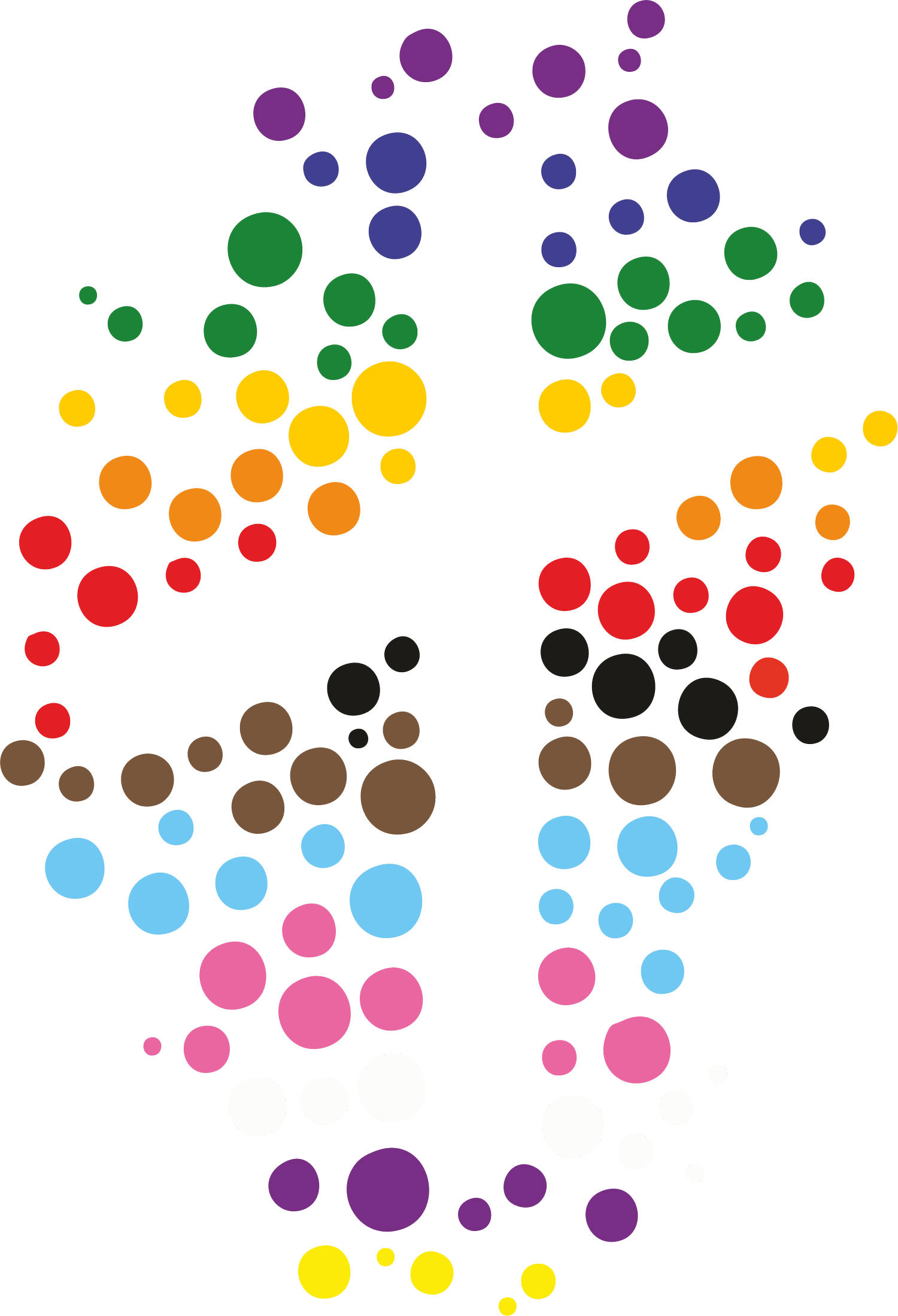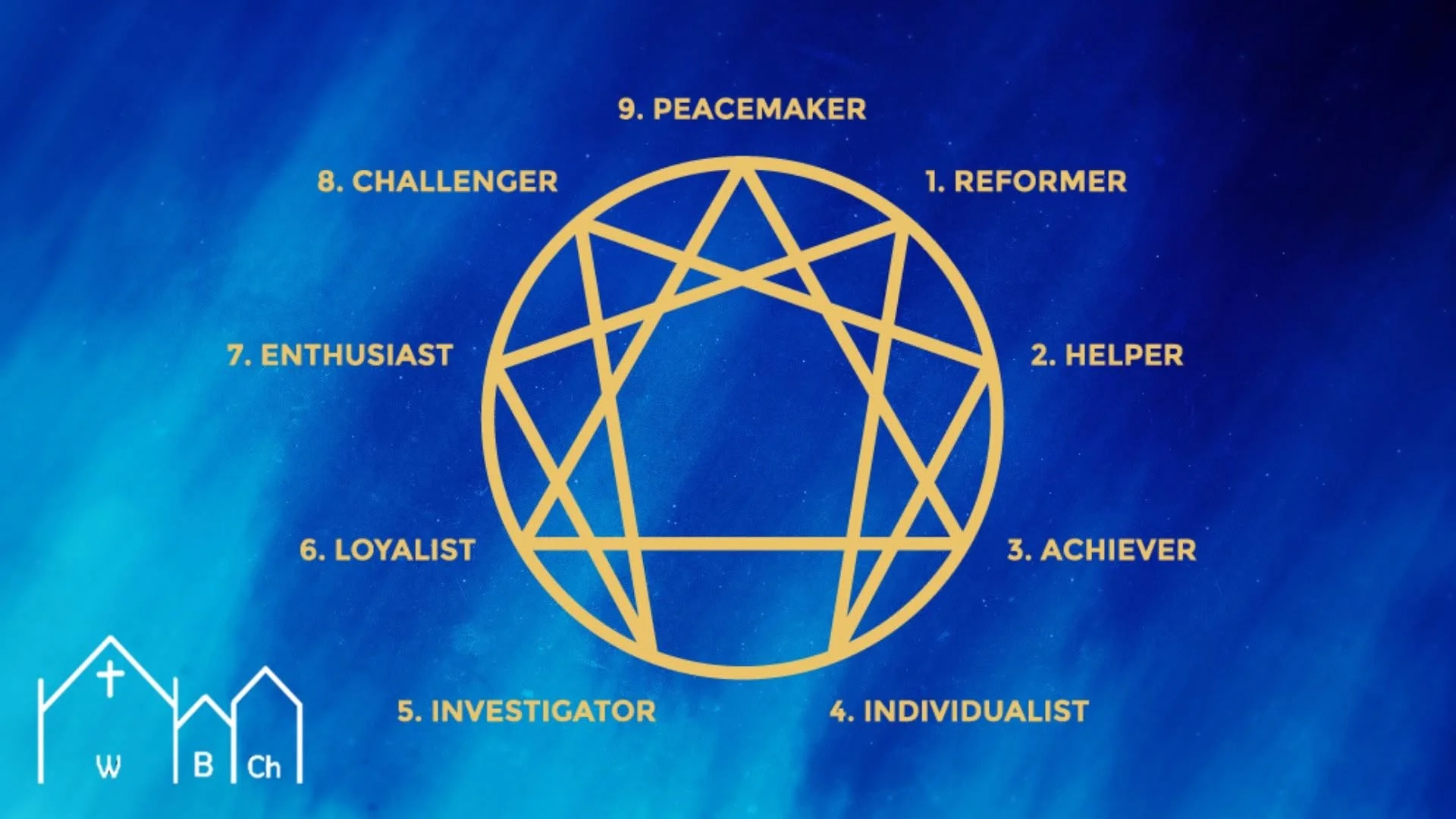Riley:The Road Back to Me
The quest of understanding yourself can sound very grand, and I’ve heard many phrases and quotes which sound delightful but aren’t really that practical. “Know thyself” sounds like sound wisdom, but isn’t very helpful on the “how” part. I wonder if this is why personality systems are incredibly popular, from MBTI to the zodiac. People want to know who they are, but it’s not an easy process. Bringing faith into this journey can add another layer. It’s no secret that many religious people can lack self-awareness and shy away from introspection. Thankfully, WBC has cultivated a culture of self-discovery which, for me, has never tilted into navel-gazing!
The Enneagram is fascinating, and, speaking personally, is probably one of the most helpful systems out there. In part, I think some of the appeal for me is that it isn’t the end of a process. In other systems, you find your type, read a description which feels vaguely fitting if you squint, and that’s it. Maybe you add it to your Facebook bio, or send a quiz link to your friends (I think I’ve forced everyone in my life to complete hundreds of personality tests over the years). Whereas with the Enneagram, finding your type is just the start. You’re given a box, and then directions on how to get out of it.
Although, I say “after you find your type” as if that’s the easy part. It took me a long time to find the type I identified with — from tests (fun but ultimately not very useful) to picking apart possible core fears and desires; all the while, my personality passionately tried to avoid being analysed.
I wanted to write about my experience not to simply monologue narcissistically, but to help. I can promise the end result won’t be “I was just too complex to be typed,” and I’ll try to avoid any of those saccharine affirmations mentioned earlier. But I think it can help, if the Enneagram is something you’re interested in, to know that struggling is part of the process.
Right at the start, when Mike first introduced the system, I read through the types and loosely decided on 5 — The Investigator. I definitely had a lower-than-average social battery on occasion, and I loved to learn. The fear of feeling incompetent didn’t quite resonate — after all, no one knows everything — but I didn’t spend too much time on this rather crucial plot hole.
Then, through the life groups, my decision wavered. Perhaps 9 — The Peacemaker — was a better fit. I didn’t like conflict, or any unpleasant emotion really. In truth, humour is pretty vital to me, and I fully believe there’s something funny in most awful situations (sometimes the sheer awfulness itself can be funny in a dark way). I liked it when people just got along.
Fast forward a few weeks, and my comfortable 9-identity felt a little fragile. Contentment is a lovely feeling for most, but I always find it a little suffocating. Too much placid pleasantness sets my teeth on edge. There has to be some excitement. A thrill. I’m a total adrenaline junkie, and boredom is my biggest weakness. How else are you meant to feel alive if you’re not doing something at least a little poorly thought through? The urge to simply move to a new town, change my name, and invent a new, exciting past often rises to the surface whenever I’ve had to be responsible for too long. This didn’t resonate with the peaceful 9. Back to the drawing board.
Four — The Individualist — stood out to me. As someone passionate about writing and creativity, the melancholic artist type was a possibility. Meanwhile, without really being aware of it, my mood had flattened. Yes, four. Although in the back of my mind, I did feel a little uncertain. I’m not really a fan of sad films or lamenting music, and beneath the snark, I’m actually pretty optimistic. But maybe I was just a marginally more positive four.
I then discovered I had a vitamin D deficiency — unsurprising as I live in England. A few weeks after taking the supplement, I felt amazing. Like each pill was a tiny sun that dazzled away the cobwebs. I joined multiple volunteering groups and absolutely loved meeting new people and getting involved. Socialising was fun again, and I looked forward to seeing people. I felt sparkling, as if I’d reconnected with who I’d been as a kid — happy and keen to talk to just about everyone I met. My friends from university, who at this point had only seen me at my “I’m organised and vaguely cynical” stage, were a little taken aback by my newfound energy.
For the first time, I considered 7 — The Enthusiast. I was restless: in the hobbies I started and then abandoned, and in the expansive range of topics I loved learning about every day. Curiosity is in my very core, and I’m convinced when you stop asking why, you’re not really living. I have a history of wildly impulsive behaviour — even my current degree choice was very much made by the heart rather than the head. I don’t particularly like deep conversations, and I have a bad habit of making jokes when trying to lighten a grim mood. The core fear felt a little too uncomfortable to spend much time on, and instead I focused on the desire: to be free, to be happy. Yes, I was sure, THIS time ——
Then, I got stressed. Without realising, I had started to grip the reins of my life with iron inflexibility. I was regimented, my planner was dusted off, and I had schedules. I achieved a lot, but I wasn’t exactly happy. More grimly efficient in ticking off to-do lists, getting things done. Cool, detached, organised, and perfectionistic to my own detriment.
It was only when life calmed down that I had the chance to reread about disintegration — how types will take on the worst traits when they’re stressed. The stoic Fives become impulsive and scatterbrained like a 7 under stress, and Sevens take on the harsh rigidity of the One — The Perfectionist — in difficult periods. It’s so hard to figure out who you are when you’ve not got time to relax, when your Enneagram type is very low down on the list of priorities.
Now, I’m slowly feeling as though I’m waking up again. I’m excited for the projects I’d left half-done, and so eager to reconnect with friends. When you’re in the thorny mass of stress, it’s so much harder to find the road back to you (great Enneagram book by Ian Morgan Cron and Suzanne Stabile by the way). I think I’m on that road.
So, as I promised not to finish with a vague ending, I think I’m a 7. The times when I feel most myself are when I am laughing. When I’m forming temporary but delightful bridges with strangers, or learning about a thousand niche subjects and feeling completely, wonderfully alive. I love going to new places, especially on a whim, and my bucket list of destinations grows every month. On the flip side, I can definitely have “monkey-mind,” where I flit between ideas, hobbies and plans — often forgetting appointments and actual obligations in the fun.
As I mentioned at the start, finding your type is only the beginning. Each of the nine has different strengths and weaknesses, and despite some (wrong) ideas online, there is no “bad” type to be. It’s less of a label and more of a road sign, which can act as an arrow for growth — how to ground yourself, break bad habits, and avoid those holes you always somehow end up stuck in. But, as my experience shows, it can definitely be a journey to finding which signpost is the most accurate for you.
A few tips I can share:
· Tests can be a good starting point, but definitely not to be relied on for accuracy.
· Core fears/desires are truly where you can find your type, not in the internet stereotypes which exist in droves. Not every 5 is going to be a bespectacled academic, not every 4 is going to be a tortured poet.
· If something doesn’t feel right, then listen to your gut. Also, if a core fear makes you feel uncomfortable or vulnerable, it’s possible you’re on the right track.
· Input from other people can be helpful, but remember that you know yourself best.
· There is no rush. Maybe you’ve got too much on your plate at the moment to care what type you are, or perhaps you’ve hit a limit on how many times you can read the word “triad” and are taking a hiatus from the whole thing — you don’t have to figure it out today.
· Be mindful of how you’re doing — stress and health can impact how you interact with the world (not to mention any vitamin deficiencies).
The Enneagram is a great system, and one which has helped me understand myself a little better. At its best, it provides a lens to see yourself, and a signpost on how you can grow beyond that label. It’s also up to you how seriously you want to take it. Some people do a test, have a quick skim-read, and then move on. Others use it as a central tool for a self-improvement journey which can be lifelong. There’s no “right” way to use it, but I do feel like it’s the most proactive system out there.
Whether you’ve been curious about the Enneagram for a while, or if you’ve already undergone the gauntlet and have settled on your type, I hope it helps. Remember, regardless of what type you decide fits you best, or if any unpleasant truths rise to the surface, you are “fearfully and wonderfully made” — and so much more than any personality system can describe.




